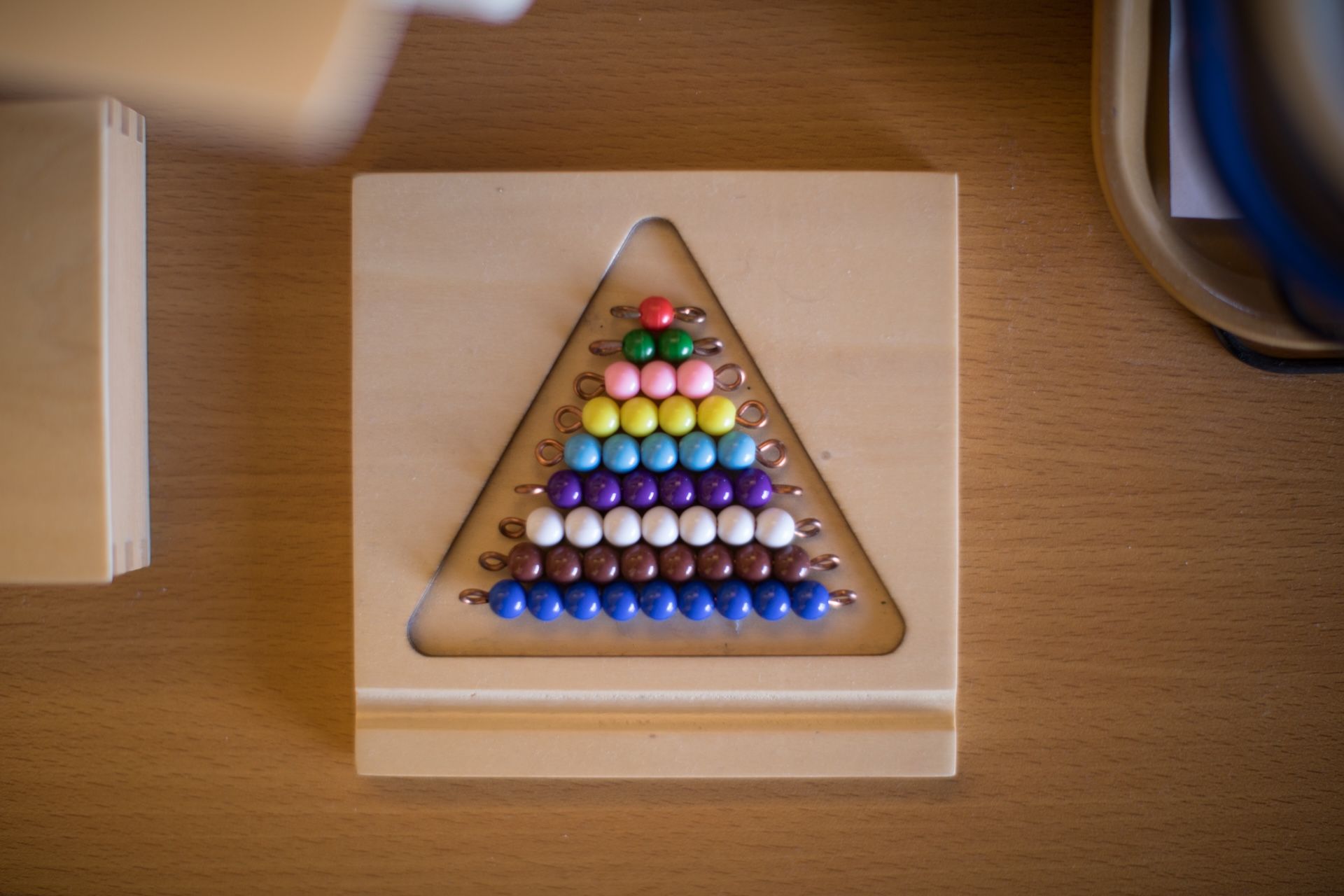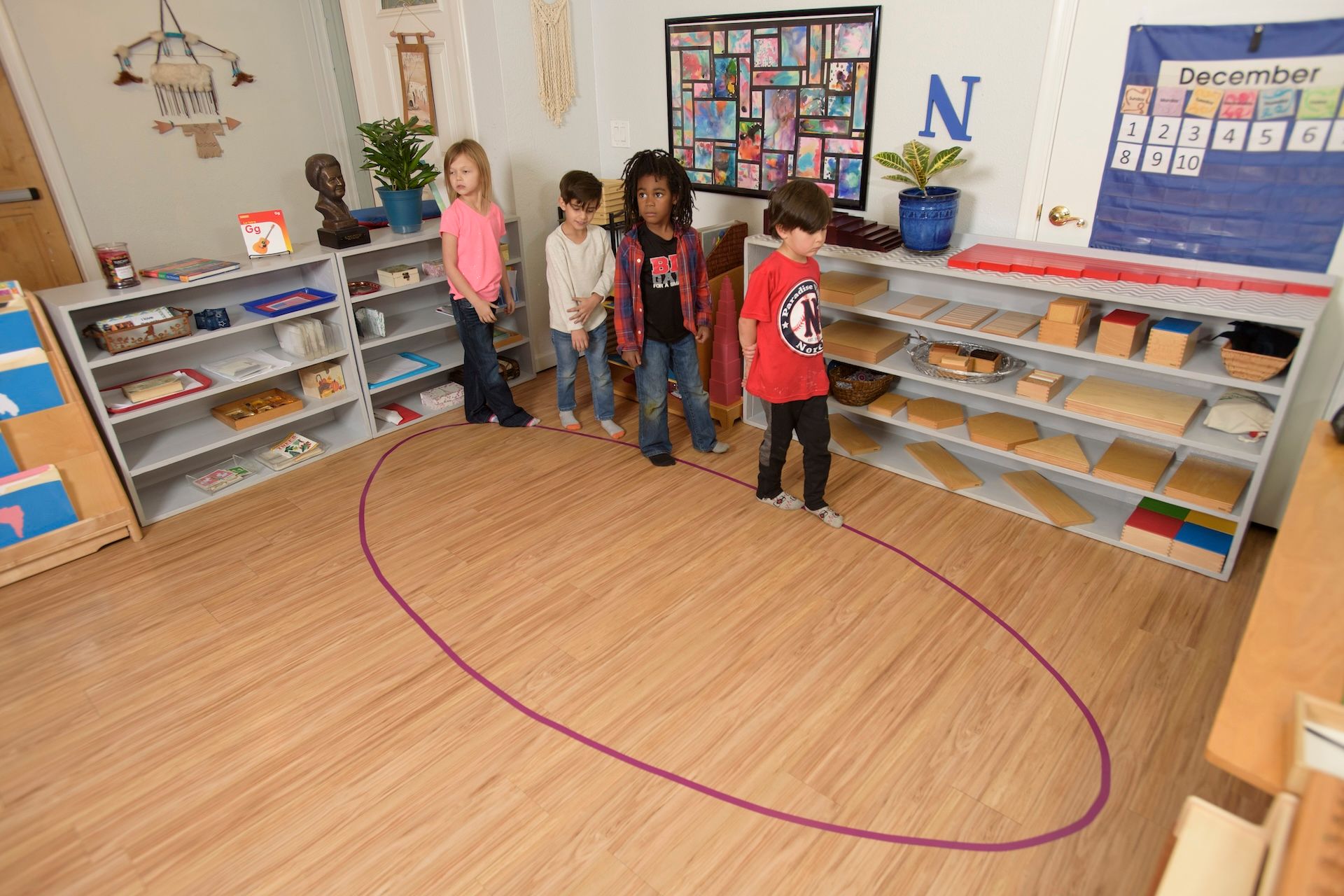
Thispost is for the primary families (although the families of older students whoread it will readily agree and support the points below - ask them when youhave a chance!). Some of you were originally drawn to Montessori because you’ve read about howdifferent and special the approach is. Some of you were looking for ahigh-quality daycare or preschool and stumbled upon us.
Thereare a plethora of reasons families choose to send their children to Montessorischools. The vast majority of those families are thrilled with their decisiononce they see how their child is nurtured, encouraged, and celebrated in ourenvironments.
Somethinginteresting tends to happen sometime around when the child approacheskindergarten and first grade.
Familiesfeel the pull of traditional schooling. They begin to worry that thedifferences that make
Montessori so wonderful just won’t cut it when itcomes to preparing their older child for life. They may have excellent publicschool options available to them.
Itcan be hard to go against what you did as a child, or what your family orfriends are doing for their children. And we fully recognize that the decisionis incredibly personal.
Whatwe can tell you is that many families who choose to leave Montessori beforetheir child enters kindergarten end up returning.
Wecan also tell you the three-year cycles in our environments are intentional,and there are some great reasons to give your child the gift of that thirdyear.
Feelingon the fence? Hopefully we can help clarify some of the reasons we think kidsdo best when they have the opportunity to complete their primary cycle.
Mastery of Skills
Thethird year in a primary classroom is a chance for students to really shineacademically. Everything they have been working on comes full circle and theirunderstanding of concepts solidifies in a way it couldn’t have until now.
Muchof what we teach in the earlier years of our primary environments is indirectand direct preparation for the lessons our third years receive and thematerials they work with.
Notonly are our kindergarten children understanding concepts in new ways, but theycan actually demonstrate this knowledge. Educators from all backgrounds willagree that when a person is able to teach someone a skill, they have themselvesdemonstrated mastery of the skill. Our classrooms are designed so that olderstudents help to teach younger ones. This teaching serves multiple purposes,one of which is to demonstrate their own understanding.
Oneof the many benefits of the multi-age classroom, our kindergarteners reallyenjoy taking on the role of giving lessons to their younger peers.
Opportunities for Leadership
Teachinglessons to younger children isn’t just aboutacademic mastery; it’s also a chance for kids to experienceleadership.
Webelieve that solid leadership isn’t really aboutpower. It’s about allowing those with experience to takeon a role of guiding others with less experience. So much of this type ofleadership is done by modeling, and our kindergartners serve as the very bestmodels for our younger students.
Whenyour child first entered the classroom, they went through a period in whichthey needed to figure out expectations, routines, and so much more. Childrenneed to learn how to be independent, how to interact with one another andadults, how to care for the environment, and so on. As adults who guide thechildren, we model and verbalize what children need to learn, but we are wiseenough to recognize that they learn more from watching their peers.
Olderchildren relish in this opportunity. It feels good to know that you are helpingsomeone else. It feels good to acknowledge how far you have come, and how youare now able to guide others along their own path. Our third years know aboutthis role because we discuss it with them often. By the time they step into it,they are more than prepared.
Continued Respect for Individuality
Youalready know that Montessori schools respect each child’s individual path,and that we believe even young people deserve to be treated with dignity. Thereare many ways in which we differ from conventional institutions, but some thatwe think are important to highlight are:
· Allowing thechild to use the restroom when they need to, without having to ask permissionfrom an adult
· Encouragingchildren to eat a snack when they are hungry and drink when they feel thirsty
· Creating astructure that allows children to take breaks when they need to, and to focusdeeply on their work for long periods of time without being interrupted
· Givingchildren academic choice within limits (they may be required to completecertain tasks, but it’s okay if they choose the order in which the tasks aredone)
· Creatingflexible seating choices so that children have options to sit alone or withfriends, in a chair or on the floor
Advanced Academic Expectations
Parentsin our community often recognize that our curriculum tends to exceed the scopeof what is taught elsewhere. We do not push children to learn what is beyondtheir capabilities, we just know that children are capable of more than mostpeople realize. When given the opportunity, they can amaze us all.
Wehonor the fact that every single child develops at their own rate, and there isno set time for various skills to be mastered. It is not uncommon, however, forMontessori students to:
· Be readingbefore they enter kindergarten
· Be workingwith numbers into the thousands at age four
· Have anunderstanding of basic grammatical principles at age five
· Engage withbasic geometry concepts not typically introduced until years later
· Enjoy skillsand content taught in the areas of biology and geography beginning at age three
· Learn cursivehandwriting before entering elementary school
· Begin addinglarge numbers and have a basic understanding of exchanging for tens
Deep-Dives Into Areas of PersonalI interest
Oneof the best parts of being in a Montessori classroom is being allowed the timeto explore one’s own interests. Because of the flexible natureof the day, kids can practice various skills while learning about what createsa spark for them.
Arethey into dinosaurs? We provide books, paper, and art supplies for them towrite about and draw diagrams of these ancient creatures.
Arethey proud of their family’s culture and heritage? We make space forchildren and families to give presentations and share their traditions.
Dothey dream about being a vet as an adult? Older children may be given moreresponsibilities to care for class pets, and they often find creative ways toconnect the zoology curriculum to the animals they know and love in real life.
Ina Montessori classroom, the possibilities really are endless. The experience isunlike anything that can be found in other educational settings, and each yearwe can give our children a Montessori education is a gift.
Stillhave questions? Please don’t hesitate to reach out and let us know how wecan support you and your child.
Hours
MONDAY - FRIDAY
HALF DAY: 8:30a – 12 noon
ACADEMIC DAY: 8:30a – 3:30p
EARLY CARE: 7:00a – 8:30a
AFTER CARE: 3:30p – 6:00p
OFFICE: 8:00a - 4:00p
Programs
Connect
Pebblecreek Montessori




